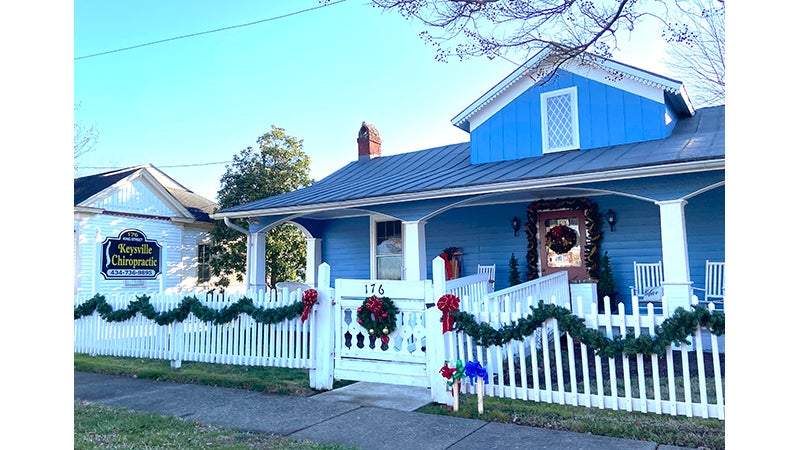STEPS moves forward on Farmville project
Published 11:15 am Friday, February 9, 2024
|
Getting your Trinity Audio player ready...
|
By Sharon Johnson
The Charlotte Gazette
64-year-old Gregory Greene said he’d been in a shelter more than 34 times since he moved to Charlottesville.
“Probably more than that. I ain’t never had a place of my own,” said the former security guard.
After dozens of attempts to find a home, Greene landed at The Crossings, a supportive housing community for formerly unsheltered people developed and managed by not-for-profit organization Virginia Supportive Housing.
“I can lock my door. I got my own bathroom. I put the air conditioning on when it’s hot,” said Greene.
It’s a concept Virginia Supportive Housing and the non-profit organization STEPS is planning to replicate in Farmville. Last year, the organizations announced their plan to build a 60 to 80-unit apartment building with an emergency shelter and supportive housing for unsheltered residents.
“We’re still in the stage that we would call pre-development,” said Julie Anderson, Director of Real Estate Development at Virginia Supportive Housing. “We’re identifying the site. We’re plotting out the timeline and identifying our funders.”
Shawn Rozier, the STEPS Vice President of Housing, said they have raised over $800,000 for the project through local support as well as individual pledges and grant funds.
“Right now, all we have is temporary motel sheltering in local motels and that’s not what we want to see as the long-term solution to serving the homeless,” said Rozier. “We want models like Virginia Supportive Housing.”
A NEED FOR HOUSING
The need for housing in Virginia is at its highest level in nearly a decade.
A recently-published Harvard study shows that nearly half of all Virginia renters are cost burdened and cannot afford their rent – similar to the national average. The country also lost 2.1 million contract units under $600 since 2012. In rural Virginia, there was an average of 44 units per 100 low-income renters in 2023.
The heavy cost is reflected in the rate of homelessness. In January 2023, homelessness was at an all-time high nationwide. Last year, the state also experienced the highest number of unsheltered people since 2015.
The US Department of Housing and Urban Development released data in December showing that 6,761 Virginians were homeless, compared to 6,529 in 2022, 5,812 in 2021, and 5,957 in 2020.
“There’s quite a bit of pressure on our housing market in terms of availability,” said Rozier, adding that owner-occupied housing across the region is about 73 percent according to 2022 U.S census-data. “We find that those that we’re serving have a difficult time finding affordable housing.”
“Oftentimes a resident may feel that they’re ready to move on into the community, to a different type of housing,” said Anderson. “That affordable housing is not always available in the regions where we are, so instead of being able to move on and allowing that unit to serve another homeless individual, they’re having to stay until they can find something affordable in the community.”
In 2023, STEPS provided shelter services to 187 people in 100 households. In 2022, Virginia Supportive Housing served 1600 people.
Rozier said there are frequent occasions when they can’t serve all unsheltered people in the region, and there are several times a year when they have to shelter people in other regions across the state.
“What we really are advocating for is more state support and federal funding support to come into our region through agencies like Virginia Housing and the Department of Housing and Community Development,” said Rozier.
WHAT’S NEXT?
Anderson says the next steps for the supportive housing project will be identifying their rental subsidy source, which they are anticipating hearing more about this summer. They also have to apply for low income housing tax credits, a step they anticipate completing in March 2025.
“That really kicks off all of the other funding applications, and by the time it’s all said and done, our typical deals will have close to 20 funding sources equaling 20 to 25 million.”
Rozier added that they are hoping to get through the process and complete the purchase of a property within the next 12 months.
By the time the complex is finished, the area will have a domestic violence shelter and supportive housing for the homeless.
Repairs and renovations are already underway for Madeline’s House, a domestic abuse shelter for victims from Amelia, Buckingham, Cumberland, Luneburg, Nottoway, and Prince Edward Counties. STEPS is in the process of securing operational money for Madeline’s House. They’re hoping the shelter will be open before the end of 2024.
“We know that people will always be entering homelessness, but we want to be able to see in each community that there are enough resources to address every individual who is becoming homeless,”said Anderson.
Rozier and Anderson are hoping for more stories like Greene’s. The 64-year-old has dealt with diabetes which made employment opportunities difficult. Greene added that his doctor told him he needed to reduce the stress in his life. Most of that stress came from rent worries.
He considers his new home a godsend.
“I can say it’s a great feeling, and I’m happy.”





